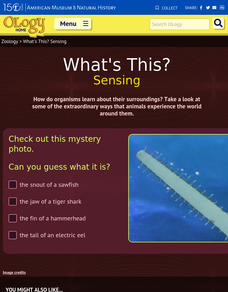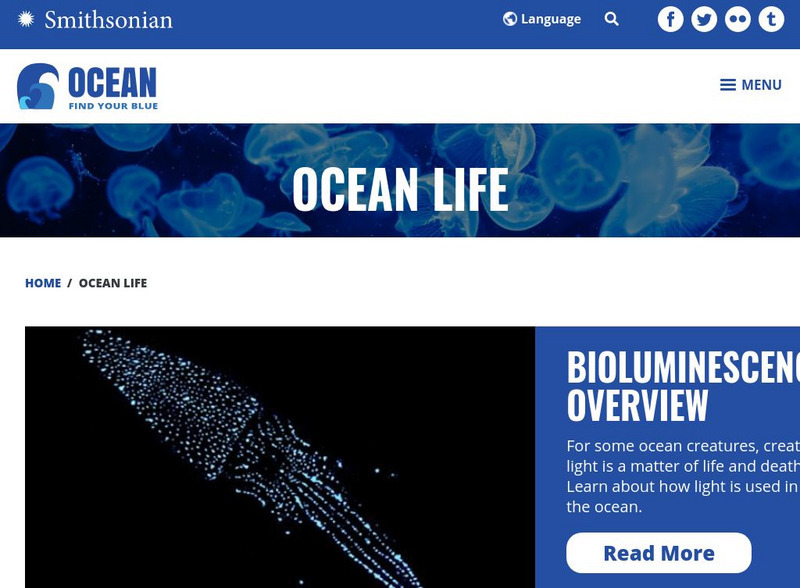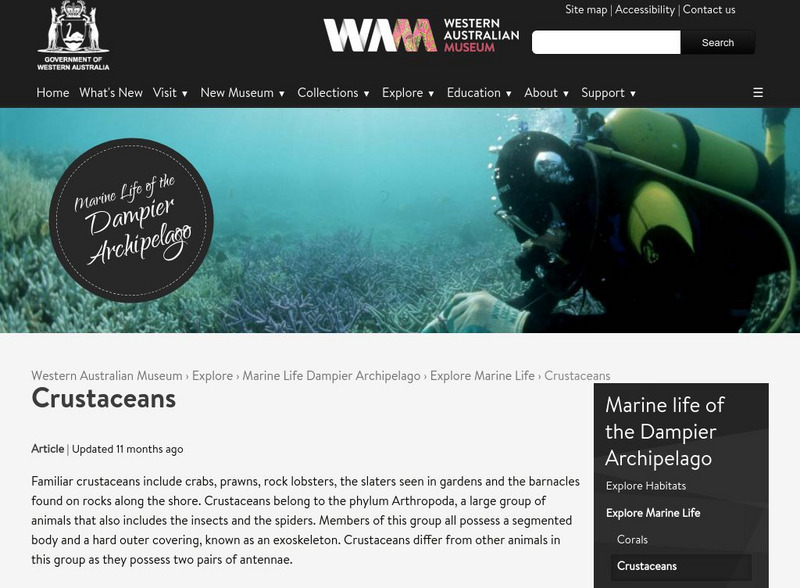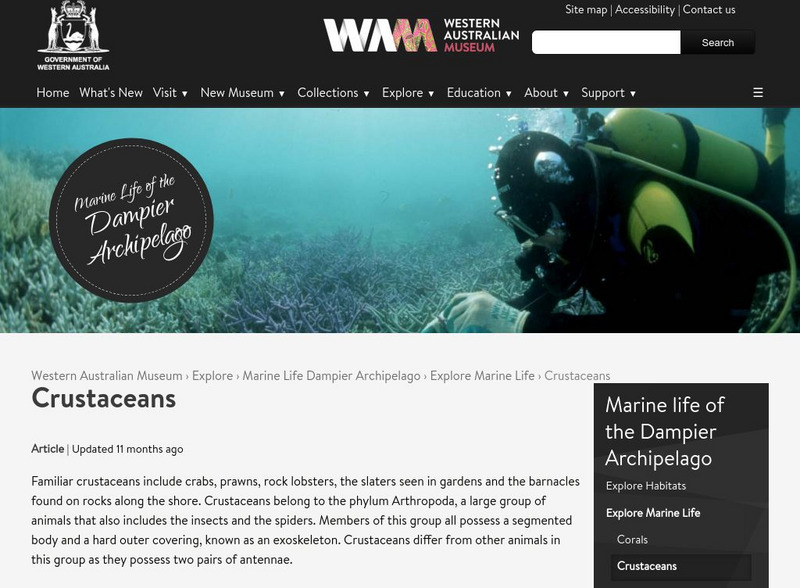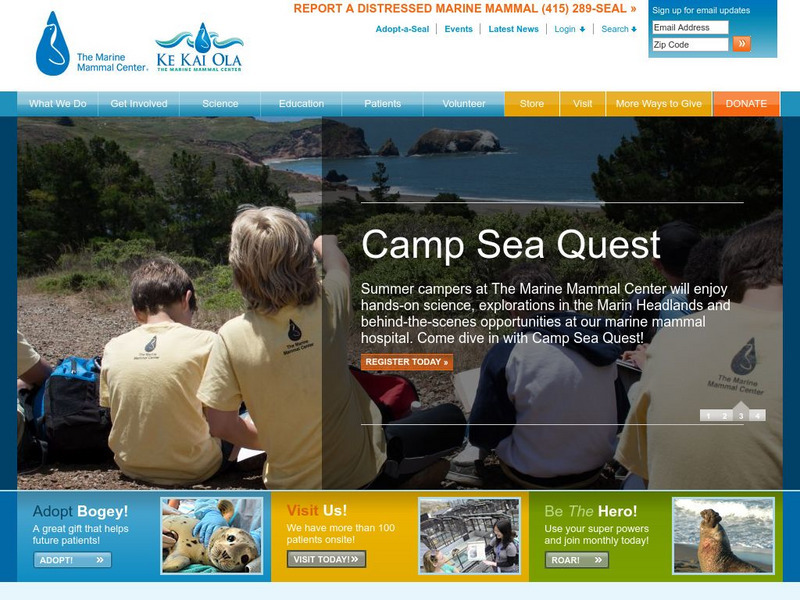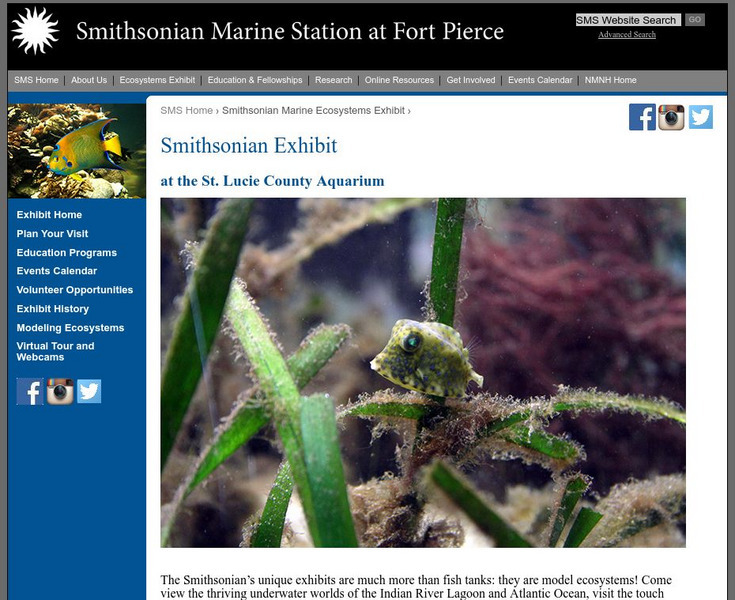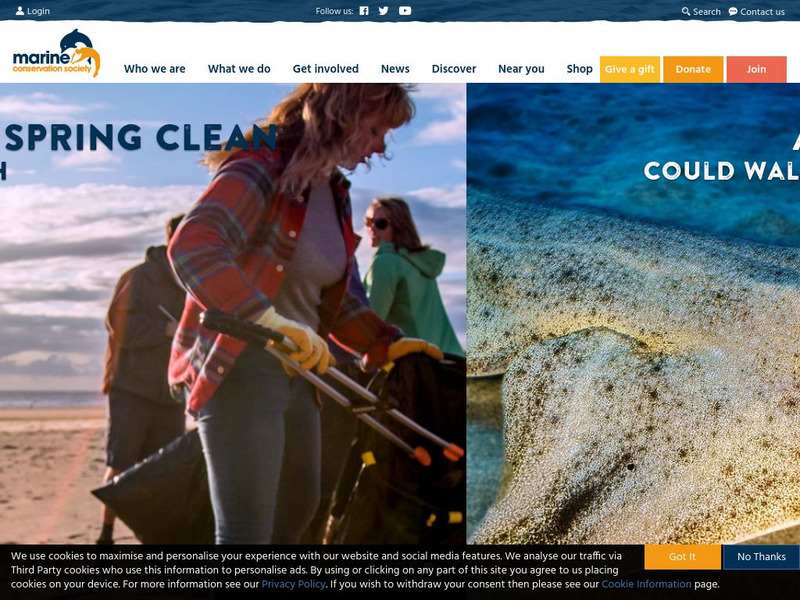American Museum of Natural History
What is Marine Biology?
A marine environment covers the majority of the earth but is arguably the least understood. Teach young scientists about the characteristics of oceans and ocean species using an interactive online lesson. The in-person or remote learning...
American Museum of Natural History
They Glow!
Would you believe marine animals can make their own light? An online resource describes the process of bioluminescence and how animals in the ocean use it to survive. The lesson features a catchy tune that describes the behavior of ocean...
American Museum of Natural History
They Glow!
Let there be light! An interactive online lesson describes the process of bioluminescence and how ocean species use it to their advantage. The lesson highlights several specific species as well as provides vocabulary support with...
American Museum of Natural History
A Whale of a Tale
What's the most interesting fact about a blue whale? Learners read an interview about the similarities between the Titanosaur and the blue whale displays at the American Museum of Natural History. Pupils learn not only about blue whales...
American Museum of Natural History
Climate Change
It actually is possible to have too much of a good thing when it comes to climate change. A slide show lesson describes how burning fossil fuels contributes to climate change. Individuals read about the scientific process and the...
American Museum of Natural History
Extreme Mammals
Extreme characteristics can create some unusual mammals. Learners flip through a slide show of some of the most interesting mammals that are both living and extinct. Implement as a remote learning resource or use in-class to review...
American Museum of Natural History
Going, Going...Gone?
Young environmentalists consider how scientists are attempting to save endangered species. They read about what causes extinction and steps to take to minimize the threats.
American Museum of Natural History
What's This? Sensing
There is a scallop that relies on sight so much that it actually has more than 100 eyes! There are many species that rely heavily on one sense or another. An online interactive resource has youth read about several of these animals. The...
American Museum of Natural History
American Museum of Natural History: Milstein Hall of Ocean Life
Tour the museum's famed exhibition hall dedicated to ocean life at this online recreation. Find videos, maps, species specimens, and images that let you experience many of the museum's resources on ocean life right from your desktop.
Smithsonian Institution
National Museum of Natural History: Ocean Portal: Ocean Life & Ecosystems
From the tiny to the titanic, from the familiar to the undiscovered, the ocean offers a stunning diversity of marine life and nearly every kind of habitat imaginable. Dive in and explore them here. Links incude stories, videos and photos...
Other
Western Australian Museum: Sponges: Marine Life of the Dampier Archipelago
Did you know that sponges are one of the simplest animals that exist? Learn about these multi-cellular animals and their importance to the marine environment.
Other
Western Australian Museum: Crustaceans: Marine Life of the Dampier Archipelago
Do you know how Crustaceans differ from other animals that belong to the Arthropod family? Find the answer to this question along with other interesting facts about this marine animal.
PBS
Pbs Learning Media: Sea Creatures
This video segment from Nature features various sea creatures. [5:52]
Other
The Marine Mammal Center
Check out the research and current topics sections for ways that this rehabilitation center for marine mammals is using tracking methods to keep tabs on some of the patients they have released back into the wild.
Other
Marines: Becoming a Marine
Are you interested in becoming a US Marine? Explore military careers and find out what the Marine Corps is all about.
US Fish and Wildlife Service
U.s. Fish and Wildlife Service: Marine Turtle Conservation Fund
Seven species of marine turtles navigate the oceans. Six of these seven species are considered endangered. Learn about the Marine Turtle Conservation Act of 2004 and a little about these ancient animals and the threats to their existence.
Smithsonian Institution
Smithsonian Marine Ecosystems Exhibit
Take an online tour of the Smithsonian's "Exploring Marine Ecosystems" exhibit. Learn about coral reefs and look behind the scenes as scientists maintain the model ecosystems.
NOAA
Noaa: Nmml: What Is Marine Mammal Science?
Besides career information about marine biology, site includes information about studying marine mammals and the National Marine Mammals Laboratory. Check out the marine mammal section then test what you learn with the marine mammal quiz.
Smithsonian Institution
Smithsonian Institution: Marine Science at the Smithsonian Institution
A site for networking many institutions, laboratories, and research groups working in the field of marine science. Has links to many scientists and their research interests.
Other
Mcsuk: Seas Fit for Life
In this thorough site, you will find lots of teacher resources including marine environmental issues.
University of Southern California
Ucla: Marine Science Center
Study the sciences of marine biology and oceanography at this good site from UCLA.
NOAA
Noaa: Marine Mammal Biologist
This resource provides infromation about careers in marine mammal biology.
Other
The Marine Science Institute
The Marine Science Institute offers various general information about the San Francisco bay and its ecology.
Other
Marine Flatworms of the World!
This personal page provides a table of contents to everything one would want to know about marine flatworms. Includes photos, charts, references, and much more.







